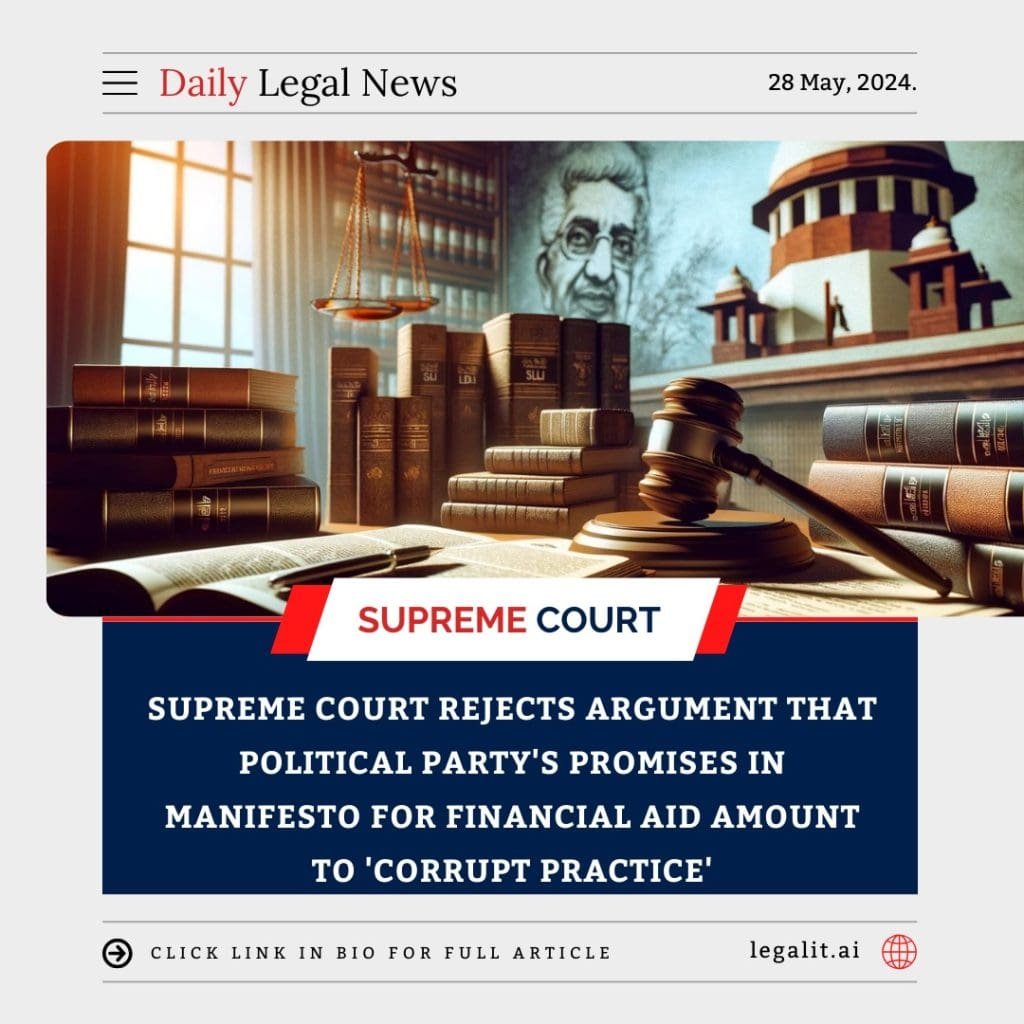
The Supreme Court of India recently dismissed an argument that promises of financial aid made in a political party’s election manifesto should be considered a corrupt practice by individual candidates. This ruling emphasizes that the scope of what constitutes a corrupt practice under the Representation of People Act, 1951, does not extend to promises made in election manifestos by political parties.
Key Observations
- Legal Framework:
- The court clarified that election manifestos, which outline a political party’s policies and promises, do not fall under the purview of corrupt practices as defined in Section 123 of the Representation of People Act, 1951. This section is primarily concerned with individual candidates rather than the collective promises of a political party【441†source】【442†source】.
- Manifestos as Policy Statements:
- The Supreme Court noted that manifestos are essentially policy documents intended to inform the electorate about a party’s proposed plans and initiatives. The implementation of these promises is contingent upon the party forming the government, and thus, they do not inherently constitute an inducement or bribe to voters【441†source】【442†source】.
- Judicial Limitations:
- The court reiterated that it is not within its domain to legislate or dictate what promises can be included in election manifestos. The judiciary’s role is to interpret the law as it stands, and the regulation of manifestos should be managed by electoral authorities such as the Election Commission of India【439†source】【441†source】.
Implications
This ruling underscores the distinction between individual candidates’ actions and party-wide commitments in manifestos. It suggests that while political parties may make broad promises to garner electoral support, these do not constitute corrupt practices under current electoral laws. The decision supports the view that electoral promises, unless clearly illegal or unconstitutional, are part of the political process and should be regulated by electoral guidelines rather than judicial intervention.